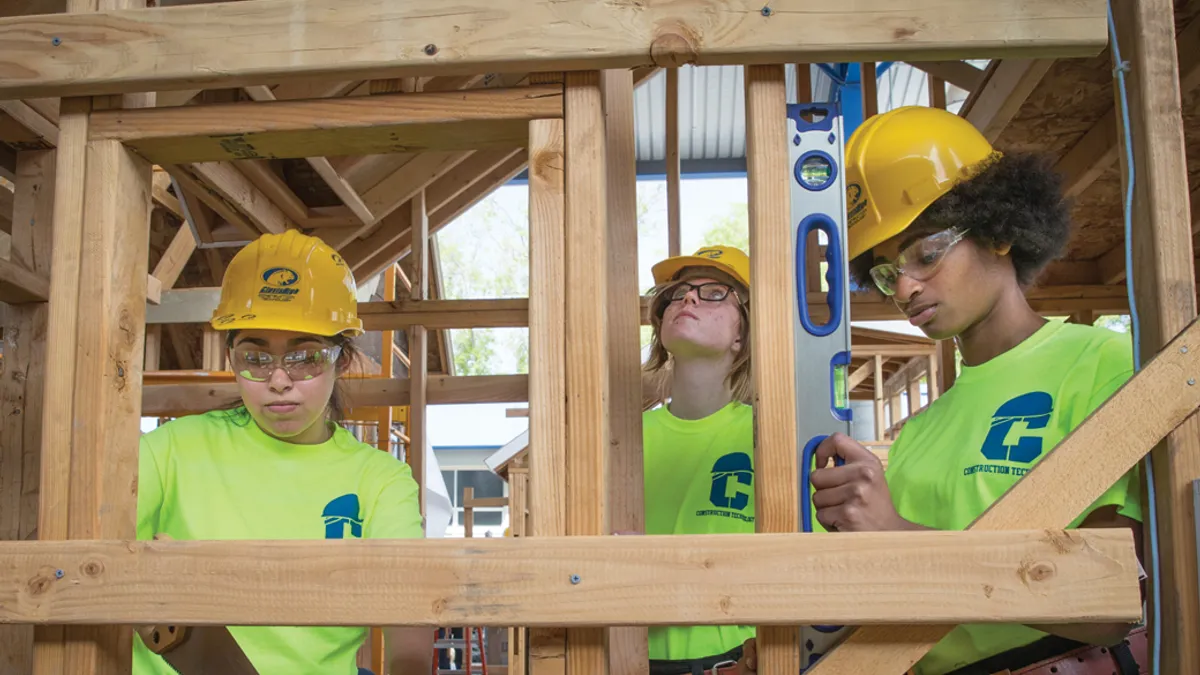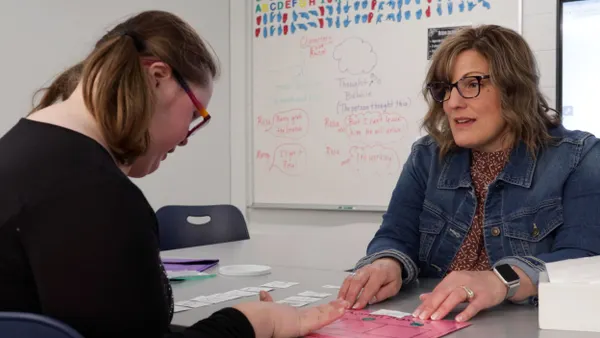Career and technical education (CTE) programs, like construction, have always offered great value to both schools and students. “Shop class” and other courses that focused on a trade or technical skills were once a staple in American education, but with the singular focus equating success to a college degree, we saw many of these taken out of the schools.
Now, the pendulum is swinging the other way, and CTE is growing in demand from students, parents, industry and government. 58% of high schoolers believe a skills-based education makes sense in today’s world, and recent legislation has expanded funding and incentives for these programs.
Now is the time to bring construction education back into our nation’s schools. Here are some of the important reasons your high school should offer construction courses.
It engages students in new ways
Educators are constantly seeking innovative ways to engage students and prepare them for the real world. By offering construction courses at your high school, you can provide students with unique learning experiences that go beyond traditional classroom settings.
Construction courses offer hands-on learning opportunities that actively involve students in practical projects. These courses often involve designing, planning and building structures, allowing students to apply their knowledge of science, technology, engineering and math (STEM) principles in a real-world context. This experiential learning not only enhances students' problem-solving and critical thinking skills, but also fosters creativity and collaboration.
Construction education also provides a platform for students to explore their interests and passions. Not all students excel in traditional academic subjects, and some may find their passion lies in practical, hands-on work. By offering construction courses, you can cater to the diverse interests and strengths of your student body.
“Are students happy? Are students finding their passion? When I go around and I see engaged students, that to me is more important than anything else,” says Gladys Cruz, district superintendent and CEO of Questar III BOCES (New York).
It teaches students tangible and relevant skills
While academic knowledge is crucial, it is equally important to equip students with practical skills that they can utilize in their future careers. Career and technical education offers students the opportunity to develop a range of tangible skills that are highly valued in the building trades industry and beyond.
Students can learn the fundamentals of skilled crafts such as carpentry, HVACR, electrical work, plumbing and more. Through hands-on activities, students learn how to safely operate tools and equipment, read blueprints and execute projects. These skills not only enhance their technical competence, but also instill a sense of pride and accomplishment in their ability to create something tangible.
In addition to technical skills, construction courses emphasize essential employability skills such as teamwork, communication and problem-solving. Students work collaboratively on projects, learning to delegate tasks, manage resources and effectively communicate their ideas. These skills are invaluable in any career path and can contribute to students' personal and professional growth.
It connects your school to local industry
One of the key advantages of offering construction courses at your high school is the opportunity to establish meaningful connections with local industry. By partnering with construction companies and contractors in your area, you can bridge the gap between education and real-world application.
Industry partnerships can provide valuable resources and expertise to enhance the quality of education. Local professionals can serve as guest speakers, offer mentorship programs or even provide internships or pre-apprenticeships for students. This type of exposure to the industry gives students a firsthand understanding of career opportunities, workplace expectations and industry standards.
Collaborating with local industry professionals can also lead to job placement opportunities for graduating students. Construction companies are often on the lookout for talented employees, and having a pipeline of qualified graduates from your school can make your institution an attractive resource for employers. This mutually beneficial relationship ensures that students have viable career prospects upon graduation, which in turn strengthens the reputation of your school in the community.
Getting started in construction education
By embracing construction education, your high school can empower students to thrive, preparing them for success in the dynamic world beyond graduation.
Interested in offering a construction education program at your school? The National Center for Construction Education and Research (NCCER) offers an easy-to-implement, cost-effective and nationally recognized program that meets Perkins funding requirements. Through the NCCER High School Builder Program, your school can provide a construction program with industry-recognized credentials using NCCER’s curricula and resources. With more than 2,000 secondary schools already utilizing NCCER across the United States, NCCER can help your school unlock all the opportunities that construction education has to offer.







 Dive Awards
Dive Awards



